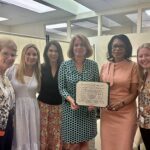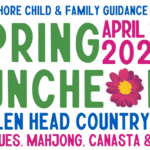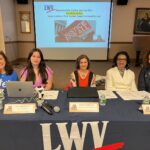By Andrew Malekoff
I cannot recall precisely how I was feeling or what my state of mind was during my late teens and early 20s, when my life revolved around school, work and relationships. The word that jumps to mind is uncertainty, which is a more formal way of saying that a lot was up in the air.
Maybe a clue to how I was feeling can be found on my bookshelf. I saved very few books from that era, some 50 years ago. One that I did keep is entitled “Loneliness and Love” by Clark E. Moustakas. I recall that the author didn’t present loneliness as a disease but rather a universal condition.
Was I lonely at the time? I’m not sure, as there are different kinds of loneliness. I had close relationships and absorbing work. I didn’t suffer for a lack of company, although I did live alone for several years. As Moustakas wrote: “There are many, many kinds of loneliness, but each experience is unique and each represents a different moment in life.”
Did my late teens and early adult years in the 1960s and ’70s offer me a different moment than young people today?
In an essay that was published last month in the Los Angeles Times, Varun Soni, dean of Religious Life at the University of Southern California, spoke to the changing nature of questions that his students raised over the course of his 11 years there. As he recalled, a decade ago they used to ask, “How should I live?” Today, he says, they are more likely to ask, “Why should I live?”
“Where they used to talk about hope and meaning, now they grapple with hopelessness and meaninglessness,” says Soni. “Every year, it seems, I encounter more stress, anxiety and depression, and more students in crisis on campus.” Among the most frequent questions students ask today, he says, is “How do I make friends?”
A recent study by Cigna revealed that loneliness is at epidemic levels in America, with nearly half of Americans reporting sometimes or always feeling alone or left out; one in four saying they rarely or never feel as though there are people who really understand them; and about half feeling they have meaningful interactions with a friend or family on a daily basis.
Cigna found that the loneliest generation was not older Americans, as one might guess, but rather young adults between the ages of 18 and 22.
To address this, USC offers various campus activities aimed at advancing connection and a sense of belonging, including yoga classes, friendship courses, meditation retreats and campfire conversations, to name just a few.
I don’t remember activities like this being offered when I attended school, but there were intramural sports, clubs and volunteer initiatives that offered the same opportunities for connection and belonging.
But there is more to it, according to Soni. He says that this generation has become increasingly disaffiliated with organized religion and the comfort and community it provides. They’ve also been exposed to active shooter trainings and school lockdown drills for most of their lives. This combination has contributed to “a crippling sense of anxiety and alienation.”
The only equivalency I can think of in the ’60s and early ’70s was the Vietnam War, which generated widespread protests across U.S. college campuses, and the tragedy of the 1970 Ohio National Guard shooting of 13 unarmed Kent State University students who were protesting the bombing of Cambodia. Four died. It was a time of anxiety. However, widespread dissent and organized protests seemed to galvanize young people and guard against alienation.
Moustakas wrote, “In loneliness, some compelling, essential aspect of life is challenged, threatened, altered, denied.” This rings true in our increasingly divided nation.
For today’s youth and young adults, there are compelling challenges that cannot be solved by attending yoga or meditation classes, although I highly recommend participation in enriching programs such as these.
The universal challenges we face today are as compelling as at any time in my life. Active participation in civic affairs that address a host of issues such as climate change or common sense gun reform is one way to prevent the loneliness of hopelessness and despair.
Andrew Malekoff is the Executive Director of North Shore Child & Family Guidance Center, which provides comprehensive mental health services for children from birth through 24 and their families. To find out more, call (516) 626-1971 or visit www.northshorechildguidance.org.















